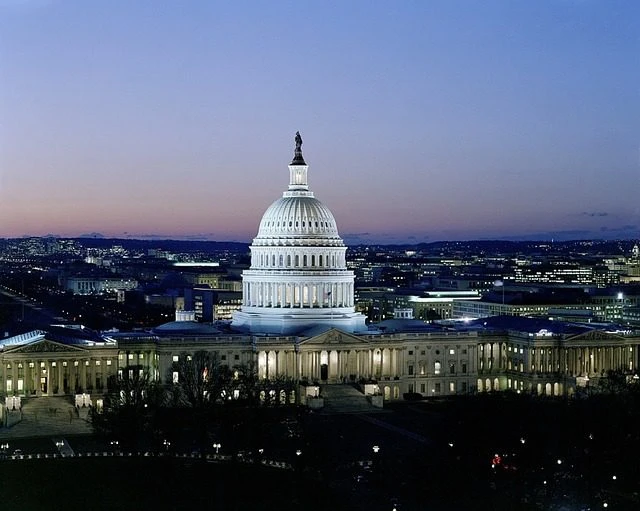Washington DC drops “royalty fee” from sports betting bill

Washington D.C.'s City Council has advanced a bill to legalise sports betting in the state, but removed an amendment awarding a so-called royalty fee for professional sports leagues.
The Committee on Finance and Revenue signed off on Bill B22-0944 during a meeting at the District of Columbia Council yesterday (November 28).
During the meeting, committee chair and councilmember Jack Evans set out how the state intends to authorise the D.C. Lottery to partner with vendors to offer both in-person and online sports wagering.
However, Evans’ hopes of adding what he described as a “royalty fee” of 0.25% of revenue to appease the major sports leagues were rejected by his fellow council members before the bill was ratified to go to a hearing before the full council next week (December 4).
Beginning the committee meeting, Evans said state forecasts place revenue at $7.7m (£6.0m/€7.8m) for the city's 2019 fiscal year and $91.7m in revenue over the first four years following the passage of B22-0944, which was originally introduced in September.
Evans then set out four technical amendments to the bill, which he encouraged the committee to accept in order for the bill to progress.
Amendments included specifically excluding fantasy sports from the bill, adding language to reaffirm the D.C. lottery as the contracting authority, setting a two-block exclusivity zone for designated gambling facilities at sports venues, and also language related to a royalty fee.
This final point proved a sticking point for some members of the committee after Evans, who admitted the royalty fee is controversial, set out a new agreement with sport leagues. Evans said he had spoken to number of leagues about a potential integrity fee where the state would pay a portion of revenue to the leagues in exchange for official data.
The leagues had requested 0.25% of all stakes placed in the state – the handle – in return for giving the D.C. Lottery exclusive use of official data. Evans rejected this proposal, instead instead putting forward a plan for the state to pay 0.25% of betting income after expenses, including winnings and staff pay. This, in turn was rejected by the leagues, which argued it undervalued their data, and resulted in a compromise whereby the D.C. Lottery would gain use of the leagues' logos and trademarks in return for 0.25% of sports betting revenue.
Evans urged the committee to approve the amendment, saying that it could be changed at a later date, either before the first or second reading in the full council.
“I can’t say this is right or wrong, but what I would like to do is keep it as it is and move forward,” Evans said. “This is more about my best efforts to give everybody something and try to do the right thing. I could argue why we shouldn't do a royalty fee and why we should do it, and there is no right answer that I can come up with.”
However, some members of the committee voiced their displeasure at plans for the integrity fee, with Councilmember Vince Gray saying: “I don’t understand why we have to invest another 0.25% of the revenue when it’s not done anywhere else in the US. I appreciate the efforts you have made to find a compromise here, but this is not something I want to find a compromise on.
“I believe these sports leagues do very well and they don’t need another 0.25% of revenue that could instead go towards supporting valuable programs in DC,” Gray added.
The committee overwhelmingly voted to strike the amendment from the bill, which now goes forward to the full council for a first reading on December 4. The other amendments were all passed, though the designated facilities tenet also caused controversy.
Councilmember White also raised concerns about the amendment on designated facilities and the two-block extension exclusivity. This applies to four major sports venues in D.C., including RFK Stadium, Capital One Arena, Nats Park and Audi Field.
Evans noted there is a strong argument being made by operators that every company should compete in the city, though also noted that others had pushed for the D.C. Lottery to be the exclusive sports betting operator in the state. The state favours the latter approach and Evans said he has tried to come up with a hybrid solution to please all parties.
In terms of how this will work, he spoke of a yet-to-be-announced agreement between MGM and Nats Park. This would mean fans visiting the venue would only be able to bet via the MGM app inside the stadium, while access to other apps would be blocked when within two blocks of the venue. However, when outside of this area and similar exclusion zones, punters would only be able to bet via the D.C. Lottery app.
Councilmember White was concerned that this limitation could mean the state misses out on revenue, saying the bars and restaurants near to sports venues is where fans are most likely to place wagers. He said he would work with Evans and his staff to appease these concerns.
New Jersey and West Virginia are among the states to have passed sports betting laws since the repeal of PASPA, but opted against any sort of integrity fees for the leagues. The American Gaming Association is also against such a system.
